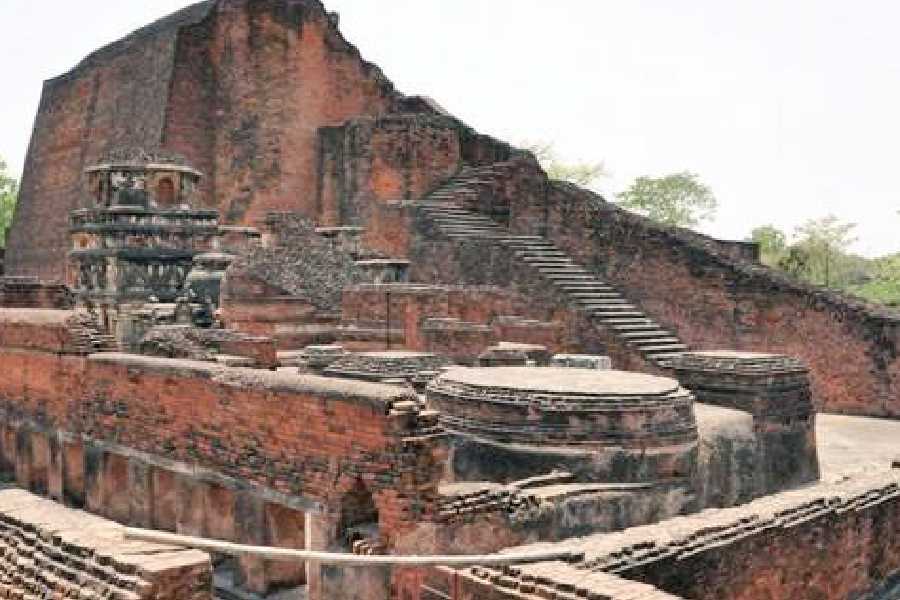The National Monuments Authority (NMA) has released the draft heritage bylaws for the protection of ancient structures in Rajgir (Nalanda) and the Asoka column at Lauriya in East Champaran district. Both the sites are under the care of the Archaeological Survey of India (ASI).
The protected site in Rajgir has a number of ruined temples and stone structures including Jarasandh ka Akhara (battleground), Bimbisara jail, Jaina shrine, Mahadeva temple, Son Bhandar cave, Maniyar Math, Jivakamravana (monastery/ancient hospital), Chariot Wheel mark, among others.
The monuments are mostly made of Mauryan bricks, stone rubble, mud mortar and brick jelly.
"Heritage bylaws are specific to a single monument or site. The NMA has been given the task of framing rules considering the immediate surroundings and local development issues of the site. The authority has invited suggestions and objections on the draft bylaws from people by July 9,” Goutami Bhattacharya, Superintending Archaeologist (ASI, Patna Circle), told PTI. With urbanisation, rapid growth and population, there is ever increasing pressure on land especially around centrally protected monuments.
“As this often affects the monument/site adversely, it is important that growth around monuments is regulated,” she said.
'Jarasandh ka Akhara' (battleground) was in the news when Bihar Chief Minister Nitish Kumar during his Rajgir trip in November last had announced that the state government would construct a 'memorial of Jarasandh' in the ancient town.
“I have asked the ASI several times in the past to handover the site to the state government for better maintenance”, the CM had said.
Draft bylaws for Rajgir say, “Monuments lie mostly embedded, or in the foothills of Rajgir hills. No development pressure, or urbanisation, or population pressure, is prevalent around this area.
The general rules of construction will be applicable for all projects as per the Bihar Building Bylaws 2014.” As far as the draft bylaws for the Asoka column, also known as Laur Pillar, is concerned, the document says, “For plots above 300 sqm, a minimum 1m wide continuous green planting strip in the periphery sides are required to be developed and maintained.” Lauriya Areraj village is situated 6.4 km north of Gobindgunj thana on the road leading towards Motihari (East Champaran). It contains one of the lofty stone columns erected by Asoka in 249 BC.
PTI
Except for the headline, this story has not been edited by The Telegraph Online staff and has been published from a syndicated feed.










